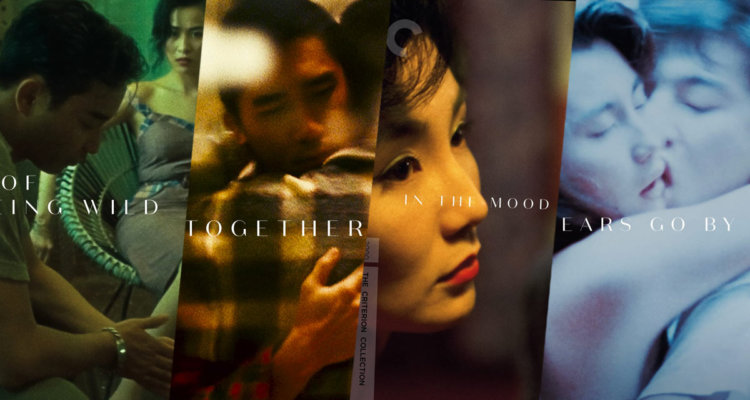When you talk about film fans, much like any sort of fandom, there are multiple “levels.” You have casual fans that enjoy going to the cinema and watching the latest features. Then you go another step and find the folks that will seek out specific works by filmmakers and follow storytellers regardless of what their latest project might be. And then you have a whole different level of film fan that not only knows all the prominent filmmakers and follows all sorts of cinema, but they pay attention to filming techniques and styles, and they study each frame. If you find yourself in the latter category, you’re probably already very familiar with the recent controversy over the Criterion Collection box set of restored versions of Wong Kar-Wai films.
Released recently, the box set of Wong Kar-Wai features includes prominent films such as “In the Mood for Love,” “Chungking Express,” “2046, “Days of Being Wild,” “Ashes of Time,” and “Fallen Angels.” And while all of those features are sporting brand-new 4K restorations, it’s the changes in the latter film that is discussed in a new interview from Pagina 12 (via Film Stage) with cinematographer Christopher Doyle.
You see, if you look on social media, you can find plenty of cinephiles using side-by-side comparisons (one such is below) to show just how drastically different the restorations are from the original films. There are some that adore the new transfers and changes, while others feel that the restorations are a decided step backward when compared to the original releases. And as mentioned, “Fallen Angels” is one example that is brought up quite often. But Doyle doesn’t think people should obsess over the changes all that much because even the original art is sometimes compromised from its original vision.
“I think that we should not be so sensitive with our works. You have to let go, let them go. No need to masturbate over creations,” said Doyle. “I was not firmly involved in the restorations, although I gave my opinion several times and I was observing how the process was carried out. I think the ‘Fallen Angels’ case is a perfect example of an attitude towards work: they tried switching to an anamorphic format and oh, how they marveled. You always have to see with new eyes, the social and conceptual changes have been many. One thing that happened in almost all of those movies, something that people often call our ‘style,’ is that it usually came out of a mistake. [Laughs]”
He added, “What happened was that we shot a certain scene with two actors who had only been hired for one day and something went wrong with the emulsion. I don’t remember the reason, maybe one of the attendees accidentally opened the can. The truth is that the image had been left with low exposure and a lot of grain. What to do about that? We tried various things and eventually transferred the scenes to high-exposure black and white film. And that worked. But we couldn’t have a single black-and-white scene, so we decided that every time something went wrong in the relationship between the leads, that situation would be seen in black and white. That became a part of the style, but it wasn’t originally that way. It was a kind of compromise.”
READ MORE: Wong Kar-Wai Directed A Lunar New Year Short Film For Mercedes Benz
Of course, Doyle and Wong Kar-Wai haven’t collaborated in a while, and it doesn’t seem like they will do so again, but it’s clear that Doyle understands that folks are bent out of shape over the restorations but also doesn’t think we should be married to any one version of a film. But when you talk about Film Twitter and the people who have noticed these changes to Wong Kar-Wai’s films, you probably aren’t going to convince them to chill out when it comes to the changes that were seen in the restorations.

